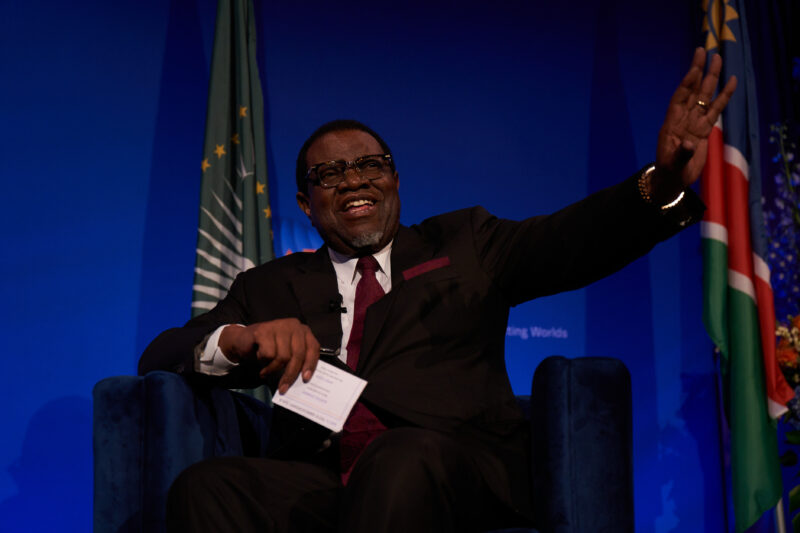From the Archives: Early Beginnings of the Malawi Congress
AAI features a quarterly “From the Archives” blog, highlighting historical milestones in AAI and African history. This blog post features verbatim historical documents from AAI’s files and articles from Africa Report, a monthly publication of in-depth analysis and reports chronicling the continent’s dramatic political and economic developments. Published from 1956 through 1995, Africa Report became the most significant Africa-focused publication in the U.S.
Africa Report, January 1963. Volume 8, Number 1
Malawi Congress is Born
Meanwhile, in late 1959, a small group in Blantyre helped Orton Chirwa, Nyasaland’s first African lawyer, and Aleke Banda, a school-boy journalist who had been deported to Nyasaland from Southern Rhodesia, to form the Malawi Congress Party (MCP) as the banned Congress’ successor.
Young Banda, no relation to Dr. [Hasting Kamuzu]Banda, edited a party broadsheet and, with other members of the MCP, reorganized branches during a period of heightened tension. This was the transitional stage.
As the leaders of the old Congress and their fellow prison graduates were slowly released, the campaign against British rule increased in intensity. Dr. Banda was allowed to leave Gwelo prison in April 1960 and thereafter the MCP gathered to itself the overwhelming support of the people of Nyasaland. Their backing was demonstrated in August 1961, when the MCP polled more than 90 percent of the votes and won all of the 20 lower roll seats and two of eight upper roll places.
“Responsible” Government
An era of “responsible” government was ushered in, with the MCP obtaining five, and eventually seven, of the 10 available Executive Council positions. In official circles, it was generally expected that the MCP ministers would now sit back and enjoy the spoils of office-—a large house on the side of Zomba mountain, a shining black limousine, an annual salary of £3,000—and would gladly permit the white permanent secretaries to run the various ministries in the traditional manner. Immediately, however, Dr. Banda and his colleagues made known their will to govern. They proceeded to reform the existing administrative machinery and to plan seriously for the future. Before the new ministers had been in office many months, their industry and ability to learn was legendary. They quickly impressed civil servants and outside observers; existing standards of efficiency were maintained and rural villagers began to experience directly the benefits which a local rule could confer.




